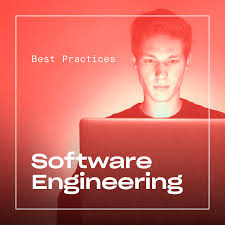If you’re wondering what to put on a software engineering resume, read this article to learn how to write one that will get you noticed by hiring managers. Include your work history, educational background, projects, and hobbies and interests. These sections are crucial for the resume to convey your overall career path. You can also include a summary of your skills and accomplishments. But which section should you put first? Here are some tips to make sure your resume shines!
Skills section
While you may not be able to list all of your classes and degrees on a software engineering resume, there are a few things that you should include. First, make sure to list your GPA and expected graduation date. This information is important because recruiters are wary of resumes with generic information. Include only courses that are relevant to the role you’re applying for. In addition, list any certifications or bootcamps you have taken in order to increase the amount of clout you have on your resume.
Projects are a great way to add color to your skills section. While listing skills is useful, showing them in projects will prove that you’re a master of the subject. Include any substantial coding projects in your skills section. You can find examples online or include links to your Github profile. In addition, mention any extracurricular activities you’ve undertaken or other achievements that may have impacted your coding style.
Education section
The Education section on a software engineering resume is more elaborate than it was in years past, but it still conveys valuable information about your qualifications. If you’re applying for a junior role, include relevant courses you took in high school or college. A recent graduate may also include courses related to financial engineering. Certificates and extracurricular activities may also strengthen your profile. In addition to the above, you should include any relevant classes you have taken.
The Education section on a software engineering resume should be tailored to the job description. Different software engineering positions require different programming skills. List the specific ones you’ve acquired in training, internships, or courses. Don’t forget to include relevant skill-based keywords. For example, if the company is looking for a front-end developer, list your experience in HTML/CSS, Javascript, and responsive design. Avoid putting security controls or deployment automation in this section unless you’re applying for a position that requires these.
Projects section
When composing a software engineering resume, you should include the Projects section. Personal projects show that you have a passion for computer science and programming. They can be in any programming language, so long as it relates to the software engineering job. They show that you are motivated by the work and are excited about the opportunity to apply your knowledge. Ideally, the Projects section of your resume should be the largest.
You can include the courses you took in your educational background. Database and algorithm design courses are ideal for an entry-level applicant. For experienced professionals, you can mention your bachelor’s or master’s degrees, but keep in mind that this section will not be the focus of your resume. Instead, focus on your relevant work experience. Don’t forget to include any honors or publications related to your chosen field. Adding these details will help you stand out from the crowd.
Hobbies and interests section
If you’re interested in working in the field of software engineering, you may want to include a section on your resume entitled “Hobbies and interests”. While it’s important to highlight your professional experience and education, your hobbies should give the employer insight into your personality. If you’re applying for a software engineer job with no relevant work experience, a hobby section can help you stand out among the crowd.
List all the software engineering skills and non-formal training you’ve had, including any programming languages. Include your level of proficiency and include specific examples. Examples of non-technical skills include HTML, JavaScript, and CTT. List your hobbies and interests, making sure they’re relevant to the position you’re applying for. If you have a background in higher mathematics, for example, include that you love playing the guitar. You can also list your volunteering work at a soup kitchen twice a month.
